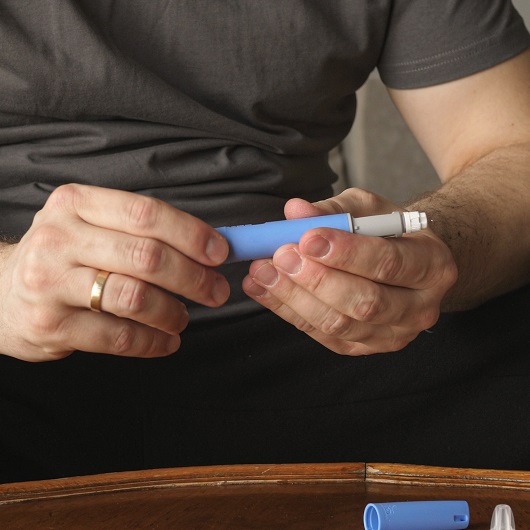Weight-loss Journal: Tracking Your Success

December 15, 2023
If you are looking to lose weight—whether it’s a few pounds or many more—keeping a journal of your eating habits, exercise and weight can be a great way to keep you on target.
“Journaling can be a really powerful tool in a number of ways,” says Douglas Ewing, M.D., director of the minimally invasive/bariatric surgery fellowship at Hackensack University Medical Center. By keeping a written record, journaling can track progress and clearly show successes.
Benefits of a Weight-loss Journal
Dr. Ewing says journaling can also:
- Make you feel more involved and active in the process
- Help you understand your eating patterns
- Hold you accountable
- Remind you of your goals
- Help you make more mindful choices
- Help you identify problem areas
- Help health care providers see your habits, progress and continuing goals
Journaling can also enable you to catalog and understand your emotions—and how those might be affecting your eating habits.
“Journaling can help you sort through emotions with particular issues, instead of coping through food,” says Dr. Ewing. Journaling can also help you identify emotional triggers that may cause you to crave certain foods or want to eat. Once you understand these triggers, you can develop alternative, healthier coping behaviors.
How to Keep a Weight-loss Journal
“There isn’t a right or wrong way to weight-loss journal,” Dr. Ewing says. It can be a simple log of what you eat and what exercises you perform. Or it could be a much more detailed log of your eating habits and the events of the day, and how they may have influenced your choices. It’s a personal choice of what you want to include or not.
Obviously, a weight-loss journal is about your weight, so regular weighing is necessary and can be helpful to keep you on track. You don’t need to weigh yourself every day, but you should do it weekly or at least monthly.
“The key to success is consistency,” says Dr. Ewing. Journaling daily is the most beneficial approach, so do whatever fits into your life. It doesn’t need to be overly detailed. If you can make it an enjoyable activity, you are more likely to keep doing it. Even after you’ve achieved your goal weight, journaling will help keep you consistent. “Losing weight itself can be challenging, but so can maintaining the weight loss, and a journal can help,” Dr. Ewing says.
Weight-loss Journal Apps
Journaling can be done in countless ways. It could be a bullet journal, daily log, diary, etc. And for people who want to do it in real time and on the go, there are numerous apps available that allow you to log the relevant data to help you stay on track.
Weight-loss journaling can make a difference in your weight-loss journey, but you can’t phone it in by only occasionally journaling, or logging your food and exercise without any thought or analysis on how it might be impacting your overall weight loss. As Dr. Ewing says: “To be successful you need to journal regularly rather than just occasionally.”


Click here to download a sample weight loss tracker template.
Next Steps & Resources:
- Meet our source: Douglas Ewing, M.D.
- To make an appointment with a weight-loss specialist near you, call 800-822-8905 or visit our website.
- Learn more about bariatric services at Hackensack Meridian Health.
The material provided through HealthU is intended to be used as general information only and should not replace the advice of your physician. Always consult your physician for individual care.






